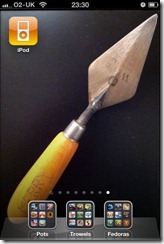Our m-Ubuntu project in South Africa hits the news in USA!
I have blogged about m-uBuntu before – a growing family of schools in South Africa who are using “cell phones” to transform how they teach.
We have been out there a few times, and were very excited to hear it being reported on by “The Word”, a US radio channel who spent a while in Cape Town visiting two great mobile literacy projects there:
- M4Lit – Mobile Phones for Literacy. Young people writing mobile stories. Championed by the excellent Steve, Ana & Marion at the University of Cape Town
- m-Ubuntu – Helping transform teaching in impoverished classrooms, and empower resource-poor teachers.
You can here the recording here:
Well done the the m-uBuntu team! It is the perfect example of collaboration, empowerment, and shared learning.
- based in South Africa
- dreamt up and managed from Washington
- funding from Sweden, UK, USA
- feet firmly planted on South African soil
- championed by Learning Worldwide (Theo), Duke University (Lucy), Tribal (Geoff & Jess), diGameworks (Jeff) and many other friends
Even the learning itself follows the principle of “u-Buntu”, helping one another to help ourselves. This is not an initiative trying to push unwelcome solutions – rather they are helping the South African Education system rise to the challenge of supporting more students with less money.
